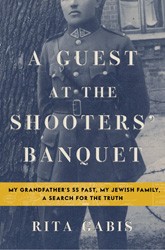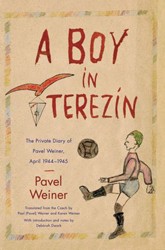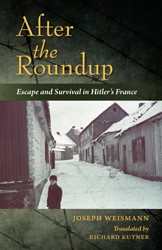This stirring memoir of Steve Ross, a highly esteemed psychologist for at-risk youth, and founder of the New England Holocaust Memorial, begins with the capture of nine-year-old Ross in the Nazi sweep of the Lodz ghetto in 1939. Ross spent the next five years of his life in ten different death camps. He describes a life-changing event at his liberation from Dachau in 1945. He left the camp to escape its horrors and limped down a road where American troops were filing further into the war zone. On the road, Ross encountered a soldier taking a break and eating his canned army rations. The soldier spotted Ross, an emaciated, badly bruised child, and jumped off his tank to give his can of food to the young boy. Orders came down and the soldiers had to get back in formation and move on. But, before he jumped back into his tank, the soldier handed Ross a small, carefully-folded American flag and said, “American.” These acts of kindness, writes Ross, energized his “life force of hope.” Ross vowed, “If I was going to survive this, I would devote my life to helping children.”
Ross became a remarkable American. Ray Flynn, the longtime Boston mayor and United States ambassador to the Vatican, described Ross as “an all-American hero.”Ross faced unspeakable horrors and used those experiences as a springboard into a life spent helping others. He became a highly successful social activist and mentor committed to helping at-risk young people finish high school and attend college. He did his “best to push back against the hatred and bigotry block by block” in South Boston. He used sports to help bring kids together, and advocated for change when the Boston School Committee refused to accept the integration of African American and white school children. He also committed himself to remembering the victims of the Shoah and became one of the founders of the New England Holocaust Memorial in Boston.
The book is an enthralling read. The short chapters provide detailed descriptions of his harrowing experiences running from the Nazis, and his terrifying experiences in the camps. These chapters are followed by Ross’s descriptions of the work he did to help inner city kids succeed in school. The juxtaposition of the two worlds — one hellish, the other filled with energy, hope, and benevolence — is very powerful.





